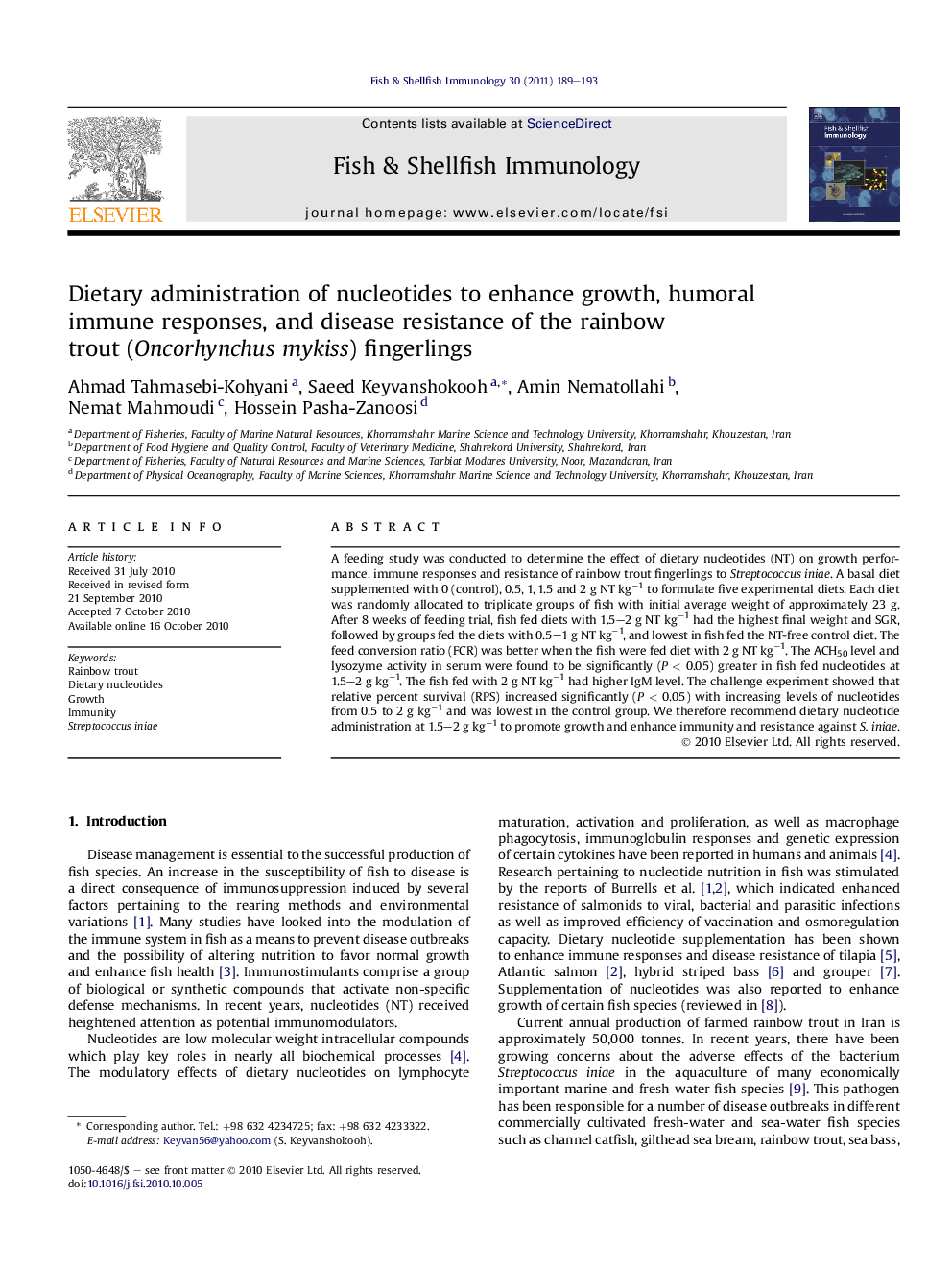| Article ID | Journal | Published Year | Pages | File Type |
|---|---|---|---|---|
| 2432721 | Fish & Shellfish Immunology | 2011 | 5 Pages |
A feeding study was conducted to determine the effect of dietary nucleotides (NT) on growth performance, immune responses and resistance of rainbow trout fingerlings to Streptococcus iniae. A basal diet supplemented with 0 (control), 0.5, 1, 1.5 and 2 g NT kg−1 to formulate five experimental diets. Each diet was randomly allocated to triplicate groups of fish with initial average weight of approximately 23 g. After 8 weeks of feeding trial, fish fed diets with 1.5–2 g NT kg−1 had the highest final weight and SGR, followed by groups fed the diets with 0.5–1 g NT kg−1, and lowest in fish fed the NT-free control diet. The feed conversion ratio (FCR) was better when the fish were fed diet with 2 g NT kg−1. The ACH50 level and lysozyme activity in serum were found to be significantly (P < 0.05) greater in fish fed nucleotides at 1.5–2 g kg−1. The fish fed with 2 g NT kg−1 had higher IgM level. The challenge experiment showed that relative percent survival (RPS) increased significantly (P < 0.05) with increasing levels of nucleotides from 0.5 to 2 g kg−1 and was lowest in the control group. We therefore recommend dietary nucleotide administration at 1.5–2 g kg−1 to promote growth and enhance immunity and resistance against S. iniae.
